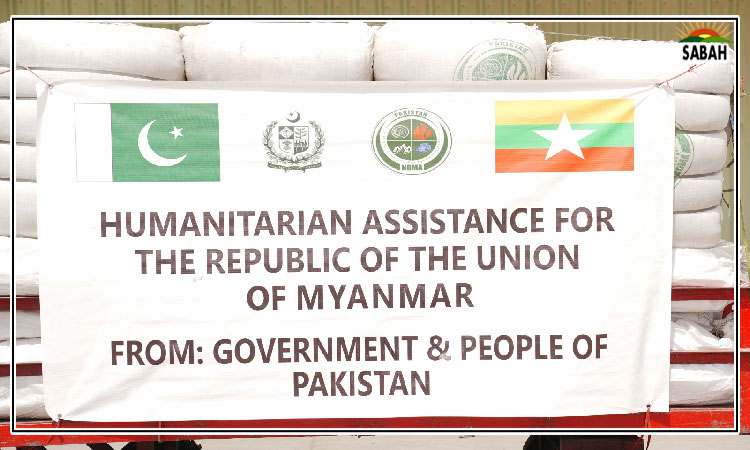Can feminist foreign policies lead to successful outcomes?…..Sara Chehab
In the run-up to International Womens Day 2023, Germanys first woman foreign minister Annalena Baerbock stated in the introduction of the countrys new Federal Foreign Office Guidelines: Shaping Feminist Foreign Policy, we will work hard to give our foreign service a more female face and raise the proportion of women in senior roles.
In declaring this intention, Germany now joins the ranks of Canada, France, Mexico, and several other countries that have adopted similar approaches to their foreign policy agendas.
The idea of a feminist foreign policy certainly has all the makings of an impactful solution to a plethora of global problems, but what does it really mean?
Based on their objectives, every country defines feminist foreign policy differently, but at the crux of it all is to achieve equality for women and girls worldwide.
READ MORE
Alex Murdaugh: A murder trial that gripped America
A circle from Frangieh to Frangieh in Lebanon
Watch Nidhi Razdan: Attacks on Rahul Gandhi will only increase
International Women’s Day 2023: Young women are our future leaders of sustainability
It reorients states foreign policy principles to be more inclusive of women and takes a more ethical and comprehensive approach to tackle systemic global issues brought about by the marginalisation and discrimination of women and girls alike.
After all, a societys true barometer of success is the state of its most vulnerable population, which, unfortunately, in many cases, is women and girls.
The ambition of these countries to adopt feminist policies, especially in the face of the active undercutting of womens rights in countries such as the United States, Russia and elsewhere, is commendable, but how realistic is it? Take women in politics and diplomacy, for example.
There is increasing evidence that womens leadership in political decision-making processes improves them. Moreover, womens engagement in peace processes increases the likelihood of peace treaties to last.
Women also bring powerful and important perspectives to the post-conflict reconstruction process, ones that should not be overlooked.
More women in leadership roles
All of these benefits point to having more women in leadership roles. And yet, the 2023 Women in Diplomacy Index, a database compiled at the Anwar Gargash Diplomatic Academy in the UAE, which covers more than 12,000 ambassadorial postings worldwide, found that women constitute an average of only 31% of ambassadorships in all states with a feminist foreign policy.
This result, while higher than the world average of 20.5%, is still far from being gender inclusive.
Gender parity in government and more women in diplomacy should be a top priority for the feminist foreign policy agenda we see emerging around the world.
Except for Canada, who has already achieved 51% parity in its ambassadorship positions, all other countries with a feminist foreign policy have ambassadorial bodies that are nowhere near equal. Even without the feminist manifesto, change can still occur.
In the G20 countries, women today constitute 21% of their ambassadors, an improvement from 2018, when that statistic stood at 17%.
The Arab world is also slowly catching up with the UAE making considerable progress with appointing more women ambassadors and permanent representatives to key diplomatic posts in Paris and Cairo, having increased their percentage share of women diplomats by 5.5% since 2018.
Ushering in a new age of Emirati diplomacy
Reem Al Hashimi and Lana Nusseibeh, the Assistant Minister for Political Affairs and the UAEs permanent representative at the United Nations in New York, are both examples of leading Emirati women diplomats who are accelerating the UAEs multilateral engagements globally.
They are ushering in a new and inclusive age of Emirati diplomacy, one that should be emulated by other countries.
So where does that leave feminist foreign policy? For there to be a true transformation in diplomacy, we must create the change we want to see at the top first.
With examples of successful women in leadership positions, we can encourage the next generation to join the field of diplomacy and foreign affairs and implement policies that are gender inclusive and empowering for those women who arent able to vocalise their needs for themselves.
We must continue to create opportunities for women to take on more leadership roles in the world of diplomacy. Several countries are already hiring more women in their diplomatic corps, and we can all learn from their successes and experiences.
Together, we can chart a course towards a more gender-inclusive and equitable foreign policy world, where both women and men are given equal opportunities to serve at the highest levels of the diplomatic ladder.
Dr. Sara Chehab is a Senior Research Fellow at the Anwar Gargash Diplomatic Academy.
Courtesy Gulf News











